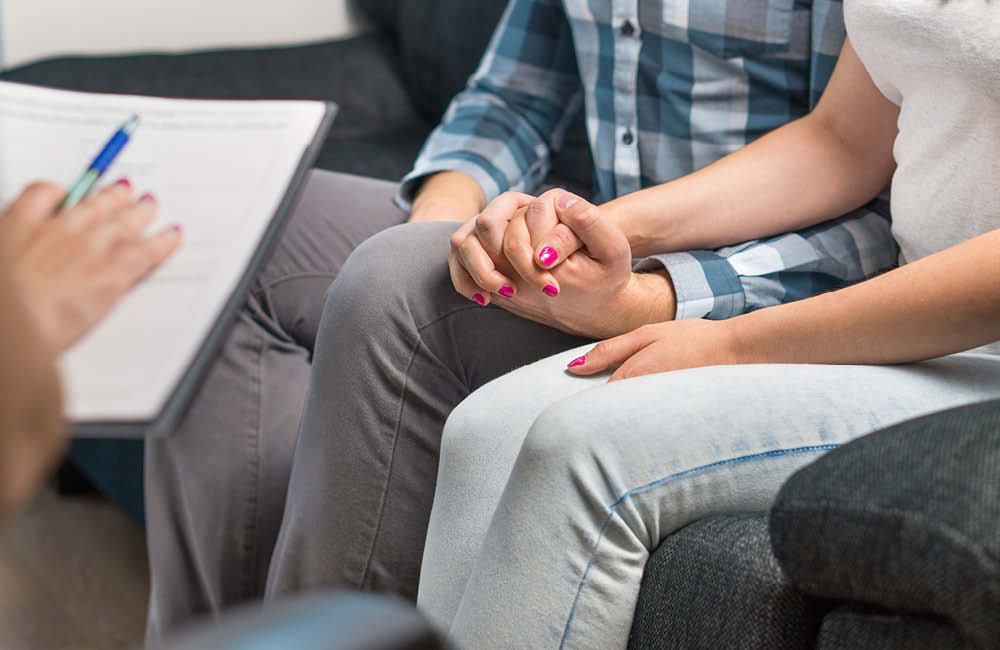You probably desire a healthy love relationship if you have or want one, right? But what exactly is a healthy relationship?
Well, that is debatable.
Because everyone's requirements are varied, healthy relationships don't look the same for everyone. Communication, sex, affection, space, common hobbies or values, and other aspects of your life may change over time. As a result, a relationship that works in your twenties may not be the same as the one you want in your thirties.
In a nutshell, 'healthy relationship' is a broad phrase because what makes a relationship thrive is determined by the requirements of the individuals involved. You and your partner enjoy exploring new restaurants, going on long bike rides, and travelling together, but there are other factors to consider when it comes to being happy and healthy in a relationship than sharing common interests.

According to a study published in the journal Personality and Social Psychology Bulletin in August 2019, being in a high-quality romantic relationship is linked to greater happiness. The study discovered that being single was considerably better for one's well-being than being in a less pleasant relationship.
Furthermore, many couples in toxic relationships are unaware of their situation, particularly if they grew up in a family where it was the norm. It's all the more crucial to be able to figure out where yours is.
The following are ten indicators of a happy and healthy relationship.
1. You Can Speak Your Mind
Couples who can freely and honestly express themselves in their relationships thrive. That means you can talk about anything, and you'll both feel heard. Consistent communication is essential for a long-term relationship.
2. You Have Your Own Space
You don't have to spend every moment with your partner just because you're in love. Taking time to pursue your interests and friendships keeps your relationship fresh and allows you to grow as people while also growing as a couple.
3. You Can Have Disagreements
Disagreements are inevitable. When people in healthy relationships disagree, they do so productively and fairly. That entails refraining from calling them names or making derogatory remarks. It also entails attempting to comprehend your spouse rather than attempting to score points. What happens if you're wrong? You express regret.
4. You Like Yourself And Your Partner As You Are Right Now
Healthy relationships should be grounded in reality. Your relationship is unlikely to improve whether you win the lottery, have a child, or move into your dream home. So don't build your relationship on the belief that things will improve. You embrace and cherish each other for who you are right now, not who you might become.
5. You Make Decisions Together
You don't have complete control over the situation, and neither does your partner. You make decisions together, from what movie to watch to how many children to have, and you listen to each other's concerns and aspirations.

6. There Is Joy
Relationships that are happy and healthy are full of laughter and enjoyment. This doesn't imply you're happy all the time—or that your partner doesn't irritate you occasionally—but it does suggest that your life together is mainly enjoyable in small ways.
7. You Find Balance
While you play chauffeur and head chef, your partner may be required to work longer hours. Alternatively, you may need to spend time with an ageing parent while your spouse takes care of the household tasks. That's how life is. What important is that your trade-offs appear fair in the long run.
8. You Treat Each Other With Kindness
Treating the person you love with care, consideration, empathy, and admiration is the ultimate indicator of a healthy relationship. Take a step back and reconsider your priorities if you find yourself offering more respect to strangers than to your partner.
9. You Trust Each Other
Healthy relationships are built on trust and an unwavering commitment to open and honest communication.
10. Your Relationship Is Your Safe Place
Your partnership should serve as a safety net, providing a secure environment to return to at the end of the day. That's not to say you never quarrel; it just means that when things get tough, you'd prefer to see your partner than anybody else.

Relationship Red Flags
Your partnership should bring you joy, pleasure, and a sense of belonging. Your relationship may be in trouble if you feel more anxious, distressed, or unhappy around your partner.
Although the indicators of an unhealthy relationship might vary, the following signs may assist you to identify some potential concerns.
• One of you is attempting to manipulate or transform the other
• Your partner is inconsiderate of your boundaries
• You don't have a lot of time together
• The relationship appears to be unequal
• They talk harsh and derogatory things about you or others
• In the relationship, you don't feel heard
• You're terrified of expressing your dissatisfaction
• You're not pleased or at ease around your partner
• Disagreements and debates are pointless

Building And Maintaining Healthy Relationships
• Make sure you know exactly what you want
• When you make a mistake, apologise
• Show affection and gratitude to others
• Prioritise your relationship
• Identify common interests
• Make an effort to feel good about yourself
• Look for options that will benefit both of you
If you see the distance between you and your partner growing, and having conversations is not leading anywhere, it’s advisable to reach out to a relationship counsellor who is trained to handle such situations. Having a perspective from a professional can bring about clarity when it comes to your relationship.
Remember, while not all healthy relationships may not look the same, ultimately it is how you feel in the relationship is that makes it healthy. So, ensure that you’re clear about your intentions, that there is an equal level of giving and taking, and remember to have fun with your partner while you figure it all out.

FAQs
Q. How do I know that my relationship with my partner is healthy?
A. While there are no concrete parameters to define what an ideal healthy relationship is supposed to look like, what matters is how you feel within the equation. If you and your partner are understanding of each other’s needs and feelings, have mutual respect, and feel safe with each other, then the relationship can be termed as a healthy one.
Q. How do I seek help when I face troubles with my partner?
A. A healthy line of communication goes a long way in solving misunderstandings. If talking to your partner is not yielding the desired results, or you find that you’re unable to reach a mutual point, it is advisable to reach out for a professional outlook. You can get in touch with a relationship counsellor, who is trained to handle such situations. A third-person perspective from a trained professional can bring about a lot of clarity for the relationship.